The Coalition of the Willing is clear: An unambitious treaty text is not, and cannot ever be an option
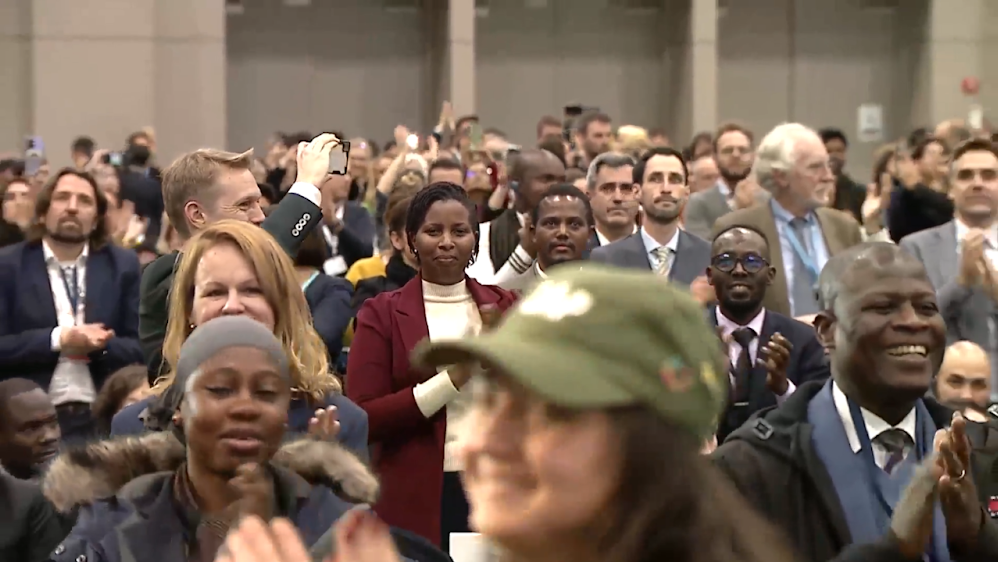
INC-5 was suspended in the early hours of Monday morning, without a treaty text being agreed. It would be easy to conclude that the week had been a failure; that the process is severely off track; that the Like-Minded group have won. All of these have a basis in truth, but they are not the overwhelming feelings I have 24 hours on. Instead, I saw an ambitious group of well over 100 members face down unambitious proposals and flatly reject them. I believe that the overwhelming message that we should take away from Busan is that a line has been drawn and that the commitment to strong measures, particularly on chemicals and supply, is stronger than ever.
Progress and frustrations step up as the clock ticks down
INC-5 was a week of two halves. As my earlier reports described, progress over the first three days was painfully slow. Contact groups took steps backwards, and it felt like we were further from success than ever. However, the Wednesday evening stocktake forced a change, and on Thursday, with the Chair seizing control of the process, real compromises started to be made. The Thursday evening announcement from Panama that 100 countries had committed to ambitious text on sustainable production marked a significant turning point in the negotiations. From then on, the rest of the negotiations took place in informal conversations behind closed doors. Friday and Saturday passed with little more than rumours reaching observers. On Sunday, this changed. A press conference held in the morning with representatives from Fiji, Panama, Mexico, the EU, France and others underlined that the High Ambition Coalition had no plans to capitulate. A new Chair’s text circulated in the afternoon further confirmed that ambitious measures were still firmly on the table. However, in the conversations that myself and other observers had with national delegates it was also clear that the Like-Minded group had little intention of shifting their position and delegates from ambitious countries appeared frustrated. It increasingly seemed like negotiations were at an impasse.
When the closing plenary finally commenced at 20.58, 72 hours since the last session in the presence of observers, it did not take long for the INC Chair, Ambassador Luis Vayas Valdivieso, to confirm that an INC-5.2 would be required stating ‘we have made significant progress in Busan … however our work is far from complete’. Over nearly 6 hours of plenary discussions, wide-ranging views were made clear about the outcome of the negotiations in Busan. The majority of members who spoke affirmed their commitment to an ambitious treaty, and there were two standout moments:
Stand up for ambition
Juliet Kabera, speaking for Rwanda on behalf of 85 countries, read a statement calling for production measures and global phaseouts of harmful products and chemicals, concluding with a call for delegates to ‘stand up for ambition’. For over a minute, the vast majority of delegates present stood, cheered and applauded in a powerful and emotional expression of the will of the majority.
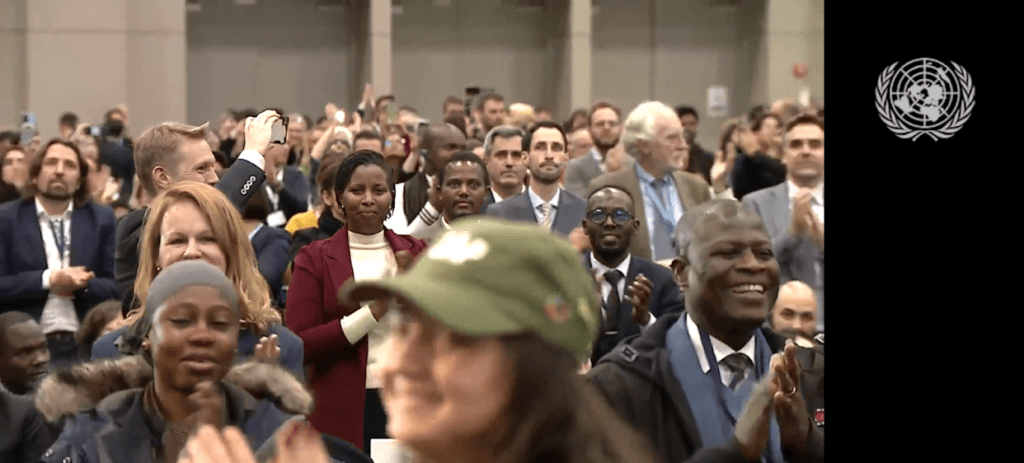
Camila Zepeda, speaking for Mexico, read out the names of 94 countries affirming that ‘the article on plastic products and chemicals in the instrument text must contain a clear legally binding obligation to phase out the most harmful plastic products and chemicals of concern in plastics’, again to rapturous cheers and applause.
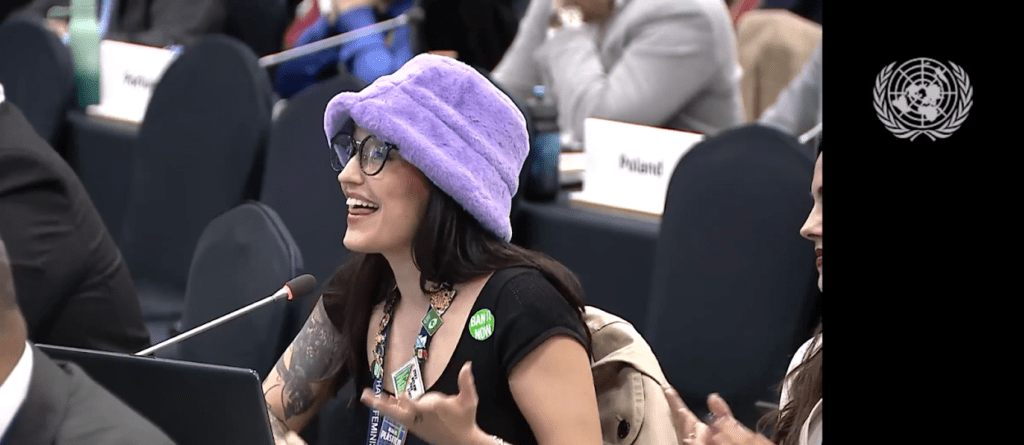
Many further impactful statements were delivered:
‘we cannot compromise on ambition or effectiveness for the sake of expediency’ – Uruguay for the Group of Latin American Countries
‘we must hold ourselves to a higher standard and expect the same from our fellow nations’ – Republic of Moldova for Georgia and Ukraine
‘for the first time, we can see the contours of [a treaty]’ – Norway
‘We did not accept a weak treaty here, and we never will’ – Panama
Of course, many challenges were also raised during the plenary. While members unanimously agreed to support the Chair’s text as a basis for further negotiations, avoiding a return to earlier, more complex texts, many members did not do this with any enthusiasm. The Like-Minded Group and the Africa Group are particularly unhappy that their viewpoints are not fully represented in the text. They note that there is no apparent logic for which text proposals have been included, and many red lines have been crossed for various members. There are many brackets and options, and the text is not close to a finished article. Most members stated that they would either want to see a significant strengthening of the text or introduce new proposals at the resumed session. Members have also not been happy with the organisation of work at INC-5 and wish to see significant improvements, namely, a more precise work structure to avoid circular discussions, increased ministerial engagement and less time in Informal settings where transparency is lost.
An unrealistic timeframe to achieve agreement
Looking back at the totality of the INC process, one fact has been unavoidable. Two years was never enough time for members to agree on an ambitious treaty text. As we left Nairobi with no intersessional work agreed and Ottawa with a bloated and unworkable compilation text the overwhelming feeling was rightly that the process was off track. However, this feeling existed partly due to the unrealistic timescales that the leadership had set. An untainted view of the discussions held in the process, particularly in the past 12 months, would show challenges but also significant progress. A two-year timeline for negotiations is almost unprecedented, and as we arrived in Busan, my first priority would have been to avoid the delivery of a voluntary agreement, only addressing waste management. As others have said, ‘a treaty in name only’. That outcome was possible. I feared that the countries with the lowest ambition may have the most prominent voice and that those who purported to have high ambition may not make their voices heard. I am delighted to say that this was not the case.
What does the path forward for the Plastics Treaty look like?
Among colleagues, I have a reputation for leaning towards pessimism, and amid an uncharacteristically upbeat account, I must address the elephant in the room. While a clear majority of members, possibly as many as 120-130, have shown ambition and a clear willingness to compromise, there are still around 30 members who have not demonstrated this willingness and, in my opinion, never will. We cannot move forward to a resumed INC-5.2 and expect this to change. I note with concern that these members are advocating for the resumed session to be held no earlier than the second half of next year. Since I started following this process, I have believed that the Like-Minded group’s primary tactic has been to delay until countries are forced to accept a weak treaty. While this has failed, the approach now appears to be delaying the treaty ever coming into force. This is more of an evolution than a revolution of their tactics but must be countered to avoid the plastics treaty becoming a new version of the UNFCCC with decades of delay and inaction.
Interestingly, there have been rumours that a ‘Treaty of the Willing’ could be negotiated outside the UN system if INC-5.2 fails. This would allow the most ambitious countries to come together and circumvent the spoilers, currently blocking progress. This has happened before, with significant success, and offers an interesting back pocket option if required.
For now, though, we look forward to INC-5.2 at a time and venue yet to be confirmed and in the words of Juan Carlos Monterrey Gomez, the distinguished representative of Panama, ‘with fire in our hearts’.
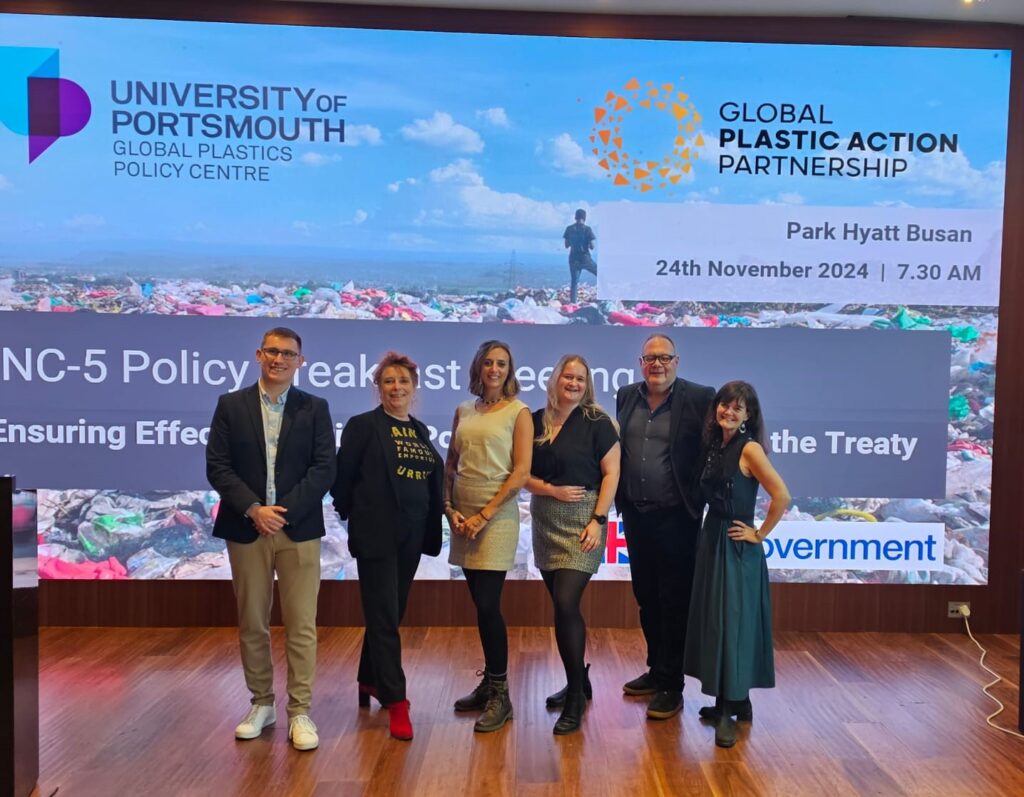
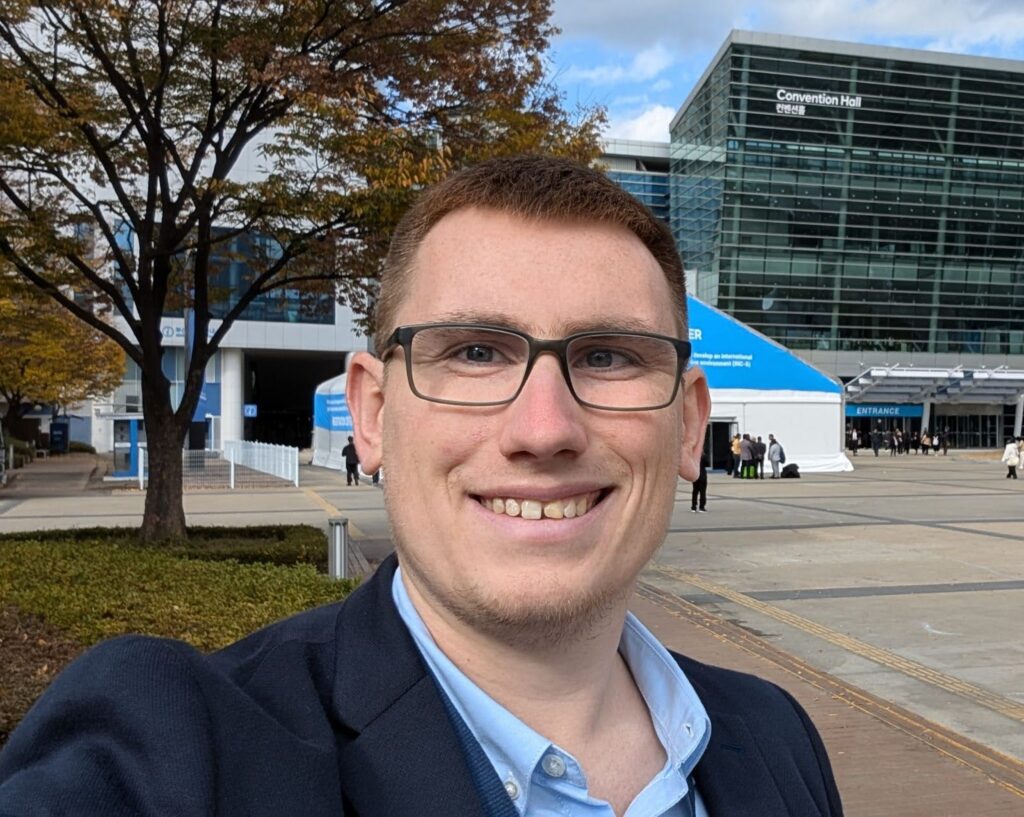
Author Biography – Sam Winton
I am a postgraduate researcher working for the Revolution Plastics Institute at the University of Portsmouth since its creation in 2020. In 2023 I commenced my PhD studies titled ‘To what extent has the structure and implementation of the INC process facilitated the development of an effective Global Plastics Treaty?’ at the University of Portsmouth and the University of Surrey. This research will focus on how the structure and implementation of the INC process impacts the treaty’s outcome, consider how the inclusion of stakeholders in the process influences a fair and just treaty, and investigate the implications of the final text for members. With a background in environmental hazards and community preparedness, my main research focus is working with communities and a broad range of stakeholders to tackle environmental challenges. I have also conducted work with international organisations with a view to creating policies to tackle the global plastics problem, and facilitate sustainable development.